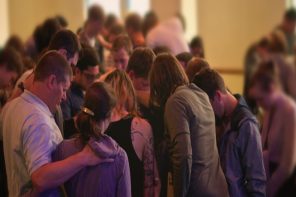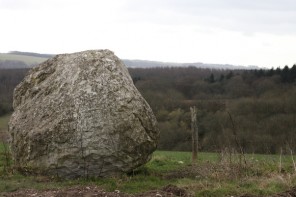Great reminder here from Jared Wilson as we, who are in church leadership, seem to continually look to the new. The better. Do we really think we now have it all figured out? That there’s really something new under the sun? Don’t think so:
And now, O sons, listen to me,and do not depart from the words of my mouth.
— Proverbs 5:7As we cling doggedly to the theology our fathers fought for and passed down to us in good faith, the doctrinal dilettantes of the day nag, “What ever happened to semper reformanda?”, positing evolving boundaries, a flexible orthodoxy, working on the assumption that our position in history gives us a better understanding of what the Bible really says.
The way we play with the shape of evangelical theology today arises from straight-up chronological snobbery.
In the New York Times last month we find this historical item related to the recent tsunami and devastation in Japan:
The stone tablet has stood on this forested hillside since before they were born, but the villagers have faithfully obeyed the stark warning carved on its weathered face: “Do not build your homes below this point!”
Residents say this injunction from their ancestors kept their tiny village of 11 households safely out of reach of the deadly tsunami last month that wiped out hundreds of miles of Japanese coast and rose to record heights near here. The waves stopped just 300 feet below the stone.
“They knew the horrors of tsunamis, so they erected that stone to warn us,” said Tamishige Kimura, 64, the village leader of Aneyoshi.
Hundreds of so-called tsunami stones, some more than six centuries old, dot the coast of Japan, silent testimony to the past destruction that these lethal waves have frequented upon this earthquake-prone nation. But modern Japan, confident that advanced technology and higher seawalls would protect vulnerable areas, came to forget or ignore these ancient warnings, dooming it to repeat bitter experiences when the recent tsunami struck.Their ancestors knew what they were talking about. They had learned the hard way. And they erected markers: Don’t build past this point. But we post-postmoderns are arrogant. We know better. We are smarter, more enlightened. And we have to accommodate more and more people. So we ignore the markers. We want to grow!
We must be reminded that semper reformanda does not mean “always morphing.” It does not mean that the faith is ever changing, progressing into something better. In many respects, to be always reforming is to be always returning to the gospel. It is to be continually sloughing off the baggage of doctrinal add-ons and distractions, cutting out the ever-rising innovations, theological and otherwise. To be always reforming is to keep going back to the ancient markers in the face of constant temptation and taunting from those who’d have us play with heterodoxy ever-newly. Let us keep contending, keep trusting, keep returning.
Follow the pattern of the sound words that you have heard from me, in the faith and love that are in Christ Jesus. By the Holy Spirit who dwells within us, guard the good deposit entrusted to you.
— 2 Timothy 1:13-14
Subscribe to MichaelKelley.co
Never miss a new post. Subscribe to receive these posts in your inbox and to receive information about new discipleship resources.




